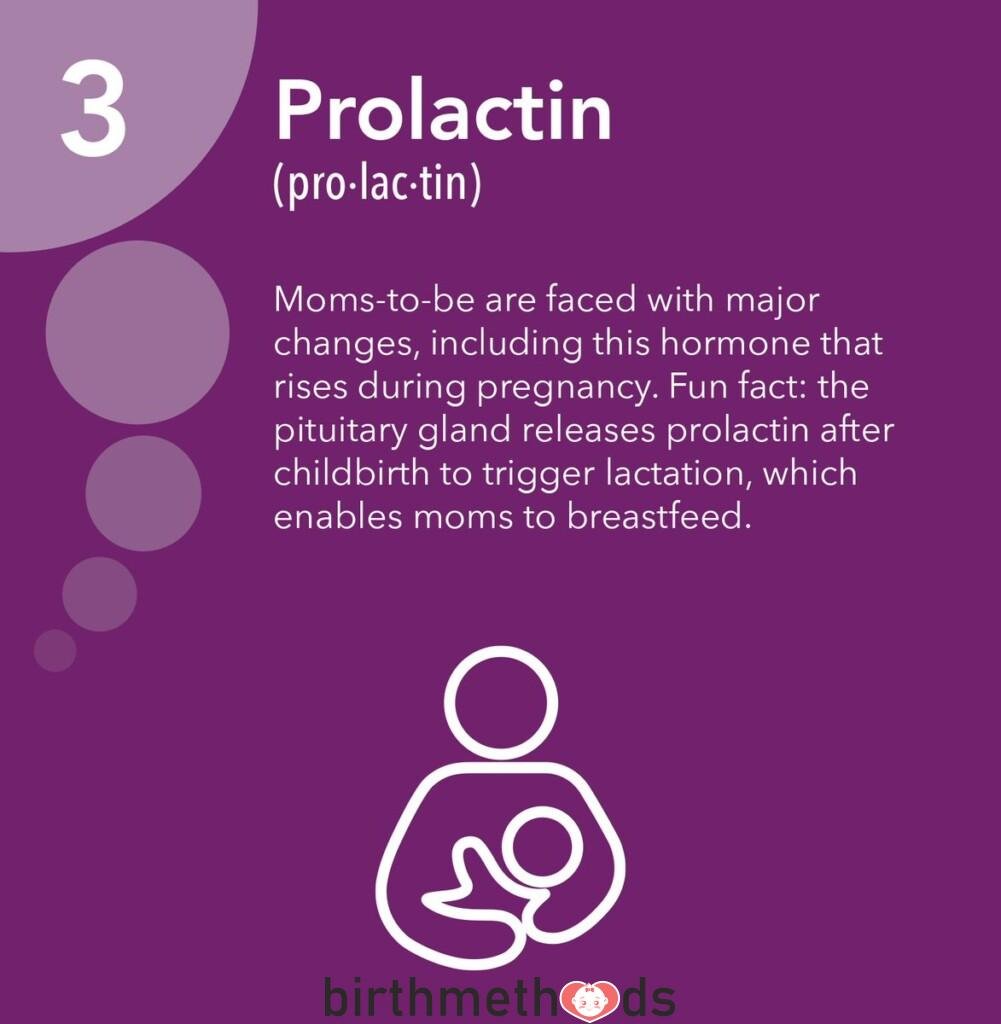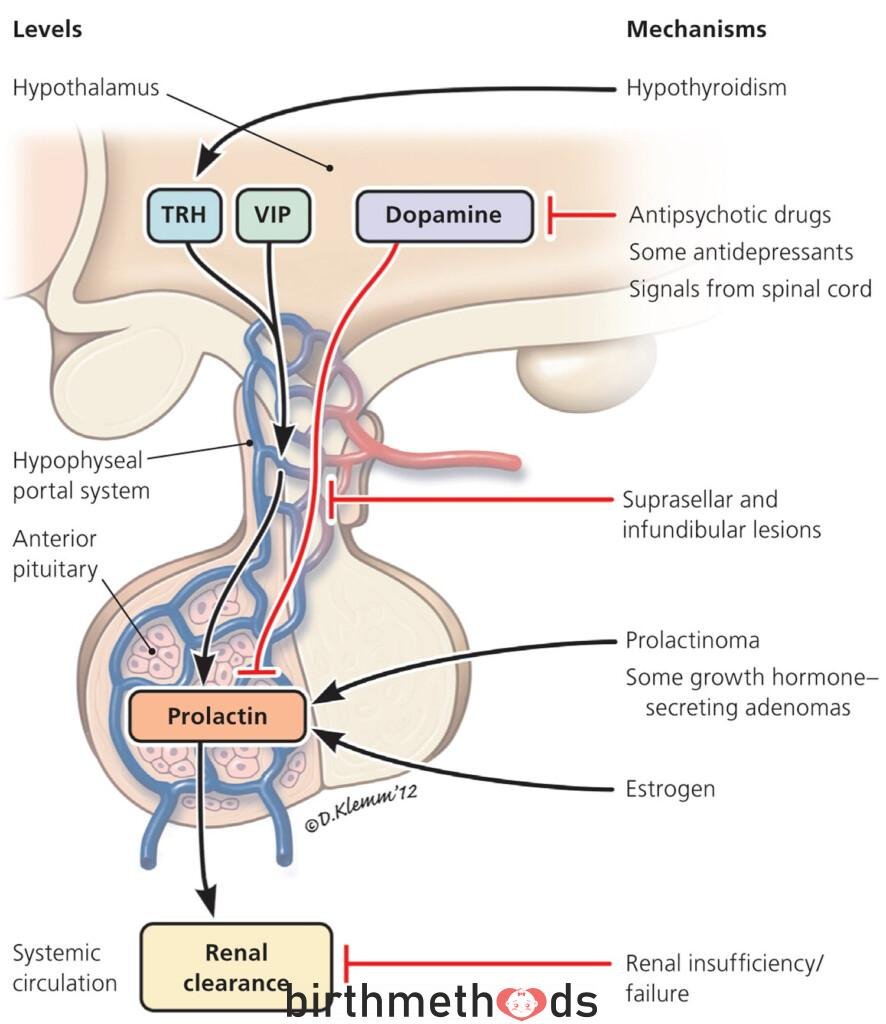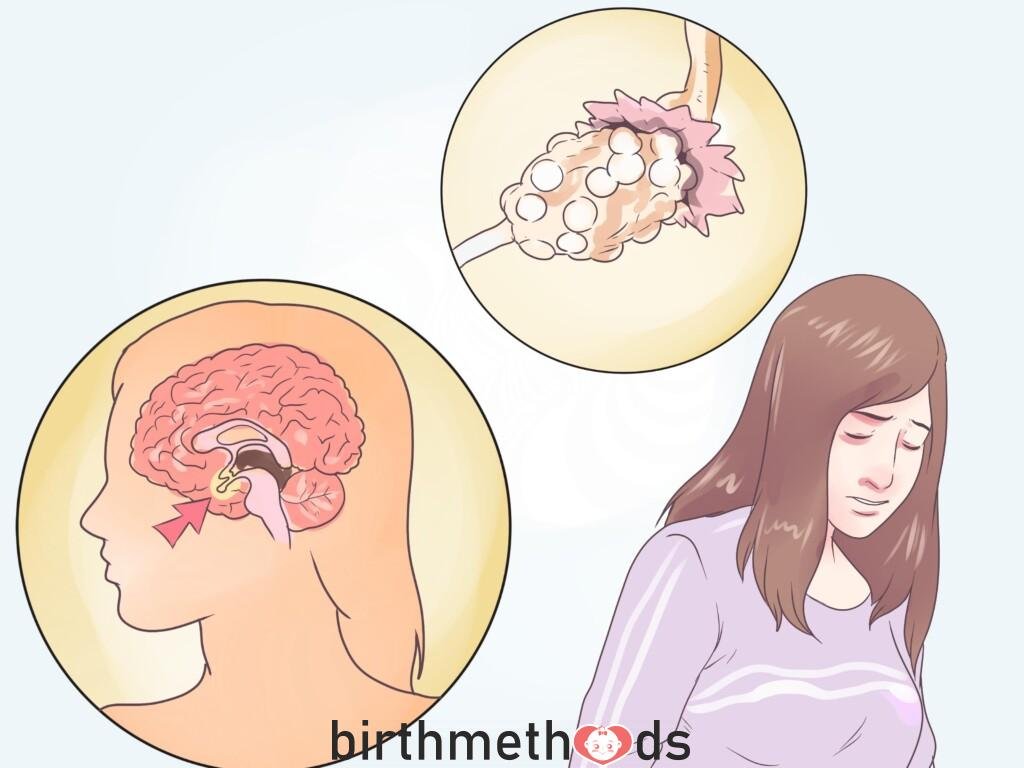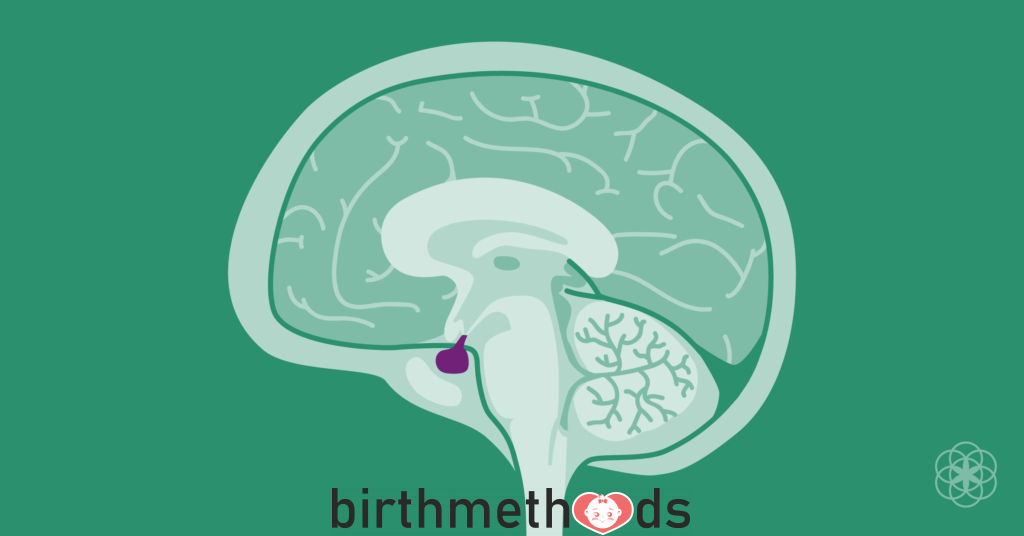Prolactin is an important hormone that has a lot of effects on the body. Its primary function is milk production, but it is involved in hundreds of processes in various vertebrates. Learn how high prolactin affects you and what to do if you think your prolactin level is high.
 What happens when prolactin is high?
What happens when prolactin is high?

In women, elevated levels of the prolactin hormone can reduce their fertility. Fortunately, there are several treatments that can restore fertility. The most common of these is a medication known as a dopamine agonist. These medications work to increase the production of dopamine in the brain and shrink prolactinoma tumors. Another treatment is a newer drug called cabergoline, which has fewer side effects than bromocriptine.
Testing for high levels of prolactin requires a blood sample. This can be done at a lab or doctor’s office. A laboratory worker will insert a needle into a vein in the arm and draw a small amount of blood. Some people experience mild pain or bruising during the process. Once the test is complete, the doctor will tell you whether your prolactin level is high or low. If your blood levels are too high or too low, the doctor may recommend MRI or another test to determine the cause.
The prolactin hormone is a polypeptide hormone produced by the pituitary gland. It is a key part of the endocrine system and affects several bodily processes. For women, prolactin promotes breast development, which results in milk production. However, the hormone has no known function in men. It also affects the production of estrogen and dopamine.
Medications can be prescribed to lower high prolactin levels. These medications may include dopamine agonists, which are drugs that stimulate dopamine receptors. Surgery is another option if a pituitary tumor is a cause. If surgery is not an option, regular blood tests and an MRI are necessary to confirm the diagnosis.
High prolactin levels can lead to infertility. It is important to speak to your doctor to determine whether this is the cause of the problem. High levels of the hormone can also cause complications with pregnancy. You should not stop taking any medication without consulting your doctor. However, if you are on regular medication, your doctor may prescribe you a different one or change the dose.
Elevated levels of the prolactin hormone can also lead to breast cancer. Because prolactin interferes with the functioning of the ovaries, the menstrual cycle becomes irregular. Women can also experience menopause symptoms and osteoporosis.
 What causes prolactin to be high in females?
What causes prolactin to be high in females?

High levels of prolactin can be dangerous for a woman’s health and should be treated as soon as possible. Treatment options include medicines and surgery. If your prolactin level is too high, talk to your healthcare provider about the various options for treatment. You should also learn more about laboratory tests, reference ranges, and how to interpret test results. Remember, however, that the information in this article is not intended to be a substitute for medical care.
The first step in diagnosing prolactin levels is to get a blood sample. This can be done in a lab or hospital. A lab worker will insert a needle into a vein in your arm and draw a small sample of blood. Some people may experience minor stinging or bruising during this procedure. Once the test is complete, you will receive a report stating the results of your prolactin level. The good news is that the results are usually within normal ranges. Prolactin levels are higher during periods of stress and after eating, so a prolactin test can help you understand what is happening to your body.
Prolactin levels can be affected by several factors, including certain medications. It can also be caused by a pituitary disorder. Although this is rare, it can result in delayed growth in children and premature aging in adults. Other causes include massive blood loss during childbirth, which can cut off the blood supply to the pituitary gland. Pregnant women should also consult a physician if they have a high prolactin level.
Some other factors that can cause elevated prolactin levels in women are stress, pituitary tumors, low thyroid hormones, and schizophrenia treatment. Symptoms include nipple discharge, low libido, and irregular periods. Treatment options include medication or surgery.
The main hormone responsible for raising prolactin levels in women is estrogen. Estrogen increases the production of prolactin in the pituitary gland. Studies have shown that women with elevated levels of prolactin in the blood circulation may experience lactation. There are also other hormones that influence prolactin production, including oxytocin and thyrotropin-releasing hormone.
 How does high prolactin make you feel?
How does high prolactin make you feel?

If you’ve been experiencing mood swings or are experiencing sleep problems, you may have elevated levels of prolactin. This hormone is naturally produced in your body and can be raised by stress, low blood sugar, or strenuous exercise. The good news is that it’s not a life-threatening condition. If your prolactin levels are high, you might need to modify your lifestyle or take medication to regulate them.
The first step in treating high prolactin is to get a blood test. Prolactin levels can range anywhere from slightly elevated to 1,000 times above normal. If your prolactin levels are too high, it may be a sign of a tumor on the pituitary gland. If you’re not sure what may be causing them, your doctor may recommend an MRI. If the tumor is large, it can press on specific areas of the brain, causing headaches and vision problems.
If you’re a woman, prolactin levels may also affect your ability to conceive. A high level of prolactin can lead to irregular menstrual periods and decreased fertility. In some women, levels over 100 ng/mL can cause infertility or menopause.
The causes of raised prolactin are numerous, and it’s important to consult a medical doctor to determine what the best course of action is. If you’re taking hormone-replacement therapy, be sure to tell your doctor about your prolactin level. Usually, the medication will return your hormone levels to normal in a few days.
The most common reason for high prolactin is a hormone imbalance. You may be taking certain medications that increase the levels, or you may have a pituitary disorder. If this is the case, it’s important to consult a doctor as soon as possible. If you suspect a hormonal imbalance, a doctor may recommend a blood test to rule out hypopituitarism.
If you suspect that you may have an autoimmune condition, your doctor can recommend an appropriate treatment. This may involve surgery or medicine. Your doctor will discuss the risks and benefits with you. High prolactin levels can also lead to menopause. High prolactin levels interfere with normal hormone production and egg release, making it difficult to conceive.
 What is the normal prolactin level?
What is the normal prolactin level?

A doctor can determine if you have an elevated level of prolactin by taking a blood sample. The procedure is simple and requires little preparation. A lab technician inserts a needle into a vein in your arm and draws a small amount of blood. Most people feel no pain, while others experience some moderate discomfort and may experience bruising. Once the test has been completed, the results will be provided in the form of a number. The number should be within a normal range. Prolactin levels may be higher or lower depending on certain circumstances, such as eating or being stressed.
Prolactin levels are higher in pregnant women than in non-pregnant women. This hormone is responsible for stimulating breast milk production after childbirth. It also supports mental health, metabolism, and the immune system. It also regulates secretion. Prolactin levels are high in pregnant women, but they can be low or even low in healthy women. However, it’s important to note that low prolactin levels can indicate other problems, so it’s important to get checked for this hormone before you start trying to get pregnant.
Some people experience elevated levels of prolactin if they are taking certain medications. Birth control pills, antidepressants, and high blood pressure medicine can raise the level of prolactin in the blood. Although there are a few possible causes of high prolactin levels, the best way to determine the cause is by visiting your doctor and undergoing a blood test. Your doctor can recommend different medications and procedures to reduce or eliminate elevated levels of prolactin.
Although the normal prolactin level is between 50 and 100 ng/ml for non-pregnant women, it can be high enough to cause a pause in the menstrual cycle and decrease fertility. In extreme cases, high prolactin levels can disrupt the pituitary gland’s production of estrogen and gonadotropin. If a woman’s prolactin level is more than 100 ng/ml, the condition is known as a prolactinoma. Symptoms can range from low sex drive to irregular periods, vaginal dryness, and infertility.
The normal prolactin level depends on many factors, including health conditions and prior prolactin tests. For example, high levels of prolactin are common in nursing mothers and pregnant women, while low levels are common in children. Some women may experience hyperprolactinemia after childbirth, which causes the inability to produce breast milk after giving birth. However, in most cases, a prolactin test alone is not sufficient to diagnose a condition, and follow-up testing is necessary to rule out any underlying causes.
Our previous post Risks and benefits of co-sleeping in our article Benefits, cosleeping ve Risks information about.














